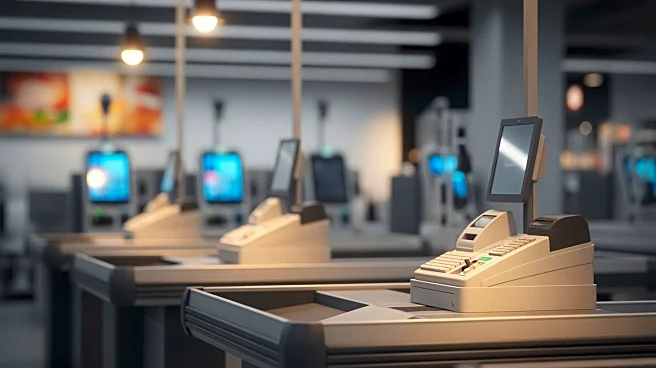What's Happening?
Democratic state Senator Paul Feeney has introduced a bill in Massachusetts aimed at capping the number of self-checkout stations in grocery stores. The proposed legislation would limit stores to a maximum of eight self-checkout machines and mandate that
there be at least one staffed register for every two self-checkout stations. Additionally, the bill requires that one employee be assigned to monitor every two self-checkout registers. The proposal, which is currently under review by the Joint Committee on Consumer Protection and Professional Licensure, also includes provisions for imposing fines on stores that do not comply with these regulations. The initiative has sparked a debate, with some shoppers appreciating the convenience of self-checkout, while others, like Cora Rossi, express concerns about job availability in the current economy.
Why It's Important?
The proposed legislation highlights a significant tension between technological convenience and employment preservation. As self-checkout stations become more prevalent, they offer a streamlined shopping experience but also raise concerns about job displacement in the retail sector. The bill reflects a broader societal debate on how to balance technological advancements with the need to maintain employment opportunities. If passed, the legislation could set a precedent for other states grappling with similar issues, potentially influencing national retail practices. Retailers, represented by figures like Jon Hurst of the Retailers Association of Massachusetts, argue that such regulations could be short-sighted, potentially stifling innovation and efficiency in the retail industry.
What's Next?
The bill's future will be determined by the Joint Committee on Consumer Protection and Professional Licensure, which will review the proposal and decide whether to advance it. If the bill progresses, it could lead to further discussions and potential amendments as stakeholders, including retailers and labor advocates, weigh in. The outcome could influence how other states approach the integration of self-checkout technology in retail environments, potentially leading to a patchwork of regulations across the country.
















